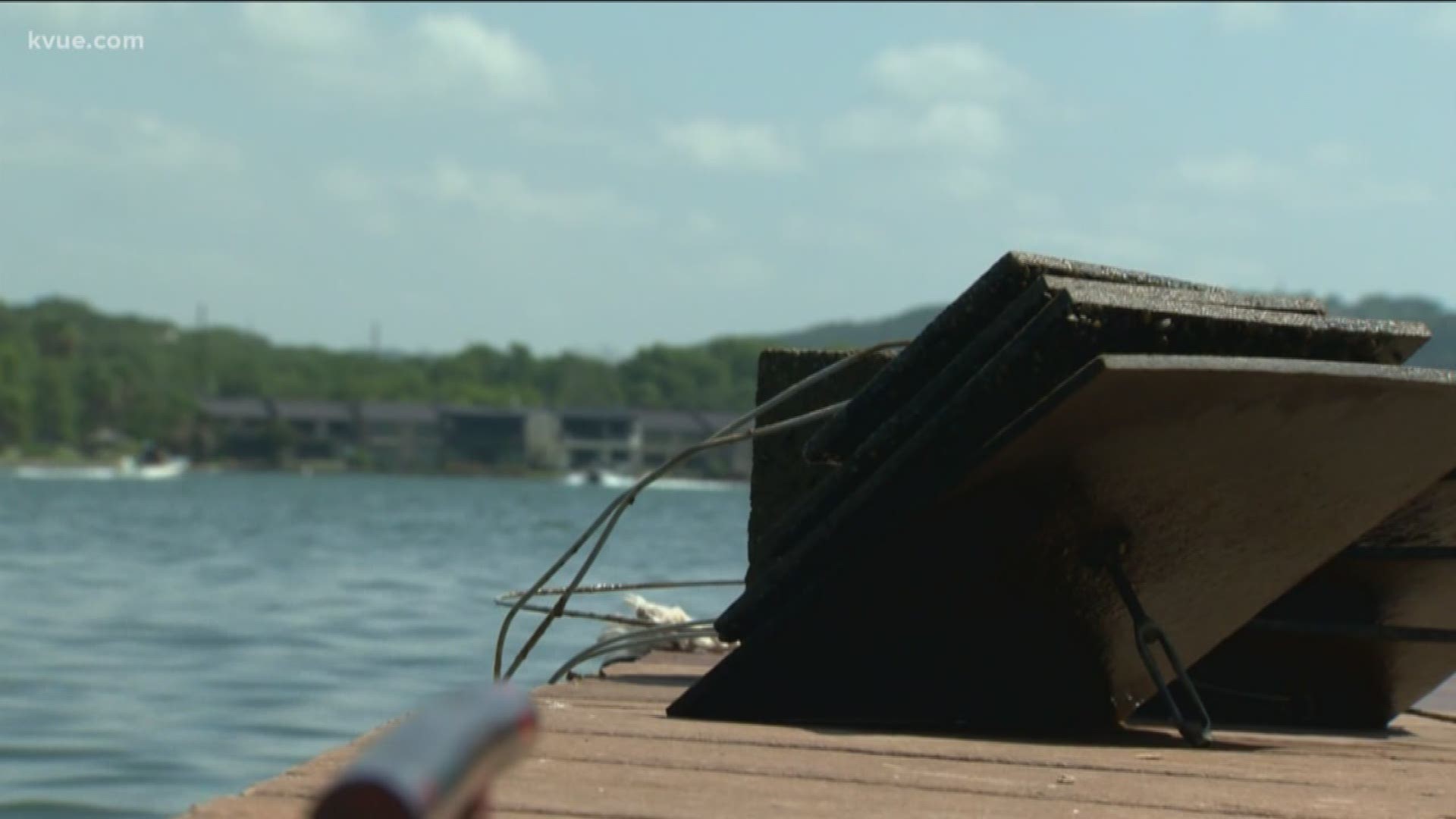AUSTIN, Texas — Since 11 a.m. Sunday until 2 p.m. Tuesday, Austin 311 received more than 2,200 complaints from customers regarding smelly water.
So, Austin Water crews will continue working to flush out the water supply that contains the smelly water until the agency stabilizes the tap water system.
But we wanted to know how zebra mussels have affected other local operations, like the Lower Colorado River Authority, especially since the invasive species are in Lakes Austin and Travis where the Tom Miller Dam and Mansfield Dam are located. These two dams produce hydropower and are operated by the LCRA.
We asked the LCRA for an on-camera interview but a spokesperson said no one would be available until next week. Instead, they provided a statement:
"We have observed zebra mussels in Tom Miller and Mansfield dams, but the mussels have not impaired flood operations or hydroelectric generation at the dams. We routinely inspect our infrastructure and remove zebra mussels when they are in an area that could eventually impact operations."
We then reached out to the CEO of Energy Keepers Inc., a hydroelectric company out of Montana.
Brian Lipcombe saw the danger zebra mussels posed on hydropower two years ago. He and lawmakers in Montana took immediate action to prevent a zebra mussel infestation.
"For our particular facility here in Montana, it could potentially be very impactive," said Lipscombe. "It could cut production at our facility by up to 25 percent given their infestation rate and it's really their ability to clog piping and infrastructure that's in the water system itself."
Lipscombe also said when zebra mussels are in the larvae stage, they are too small to filter out and once they get to a suitable habitat, they multiply and infest in a matter of six months. He said that can shut down a cooling system in a hydro plant in an instant.
In 2017, the Montana legislature passed a bill that assessed fees on fishing licenses, hydroelectric facilities and some utilities to generate an estimated $14 million. Those fees pay for inspection and decontamination stations for boaters to help prevent spreading the mussels.

